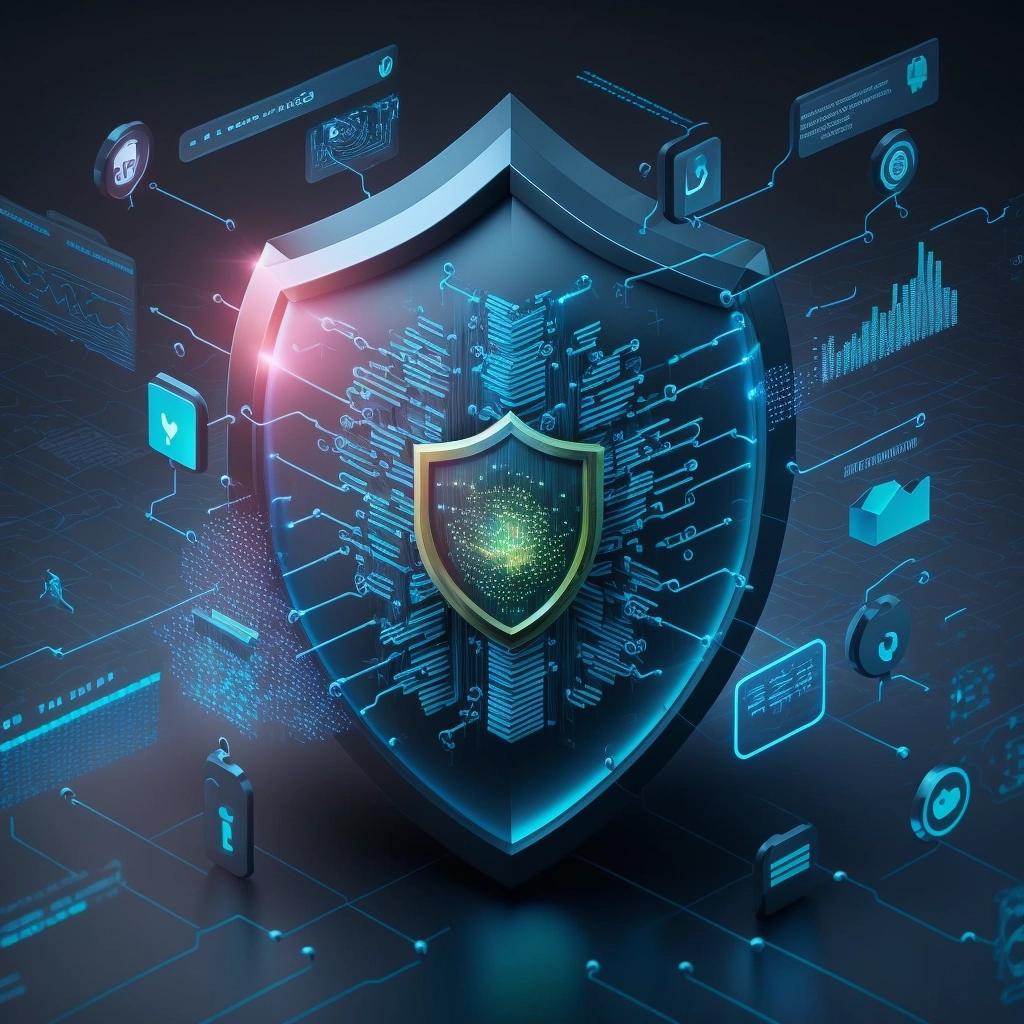How important is Data Security?
Introduction
Data security is a critical aspect of protecting sensitive information and ensuring the confidentiality, integrity, and availability of data. As technology continues to evolve and data becomes more widely distributed, the need for effective data security measures becomes increasingly important. In this blog post, we will explore the key aspects of data security and the measures businesses can take to protect their data.

Different Aspects of Network Security
- One of the most important aspects of data security is access control. This refers to the process of granting or denying access to data based on user credentials and other factors. Access control can be implemented through various methods, such as usernames and passwords, biometric authentication, and two-factor authentication. This can help prevent unauthorized access to data and protect sensitive information.
- Another important aspect of data security is data encryption. Encryption is the process of converting data into a code that can only be decrypted by authorized parties. This can help protect sensitive data from being intercepted and read by unauthorized parties. There are various types of encryption, such as symmetric and asymmetric encryption, and businesses can choose the type of encryption that best meets their needs.
- Firewalls are another important aspect of data security. Firewalls are a type of security software that act as a barrier between a network and the internet. They can be used to block unauthorized access and protect against cyber-attacks. Firewalls can be implemented in various forms, such as hardware firewalls, software firewalls, and cloud-based firewalls. These can help to control access to data and prevent unauthorized access.
- Another important aspect of data security is data backup and disaster recovery. Data backup refers to the process of creating copies of data for the purpose of recovery in case of data loss. Disaster recovery refers to the process of restoring data in the event of a disaster. Businesses should have a plan in place for data backup and disaster recovery, including regular backups and testing of recovery procedures.
- Businesses should also be aware of the importance of data governance. Data governance refers to the management and control of data throughout its lifecycle. This includes policies, procedures, and standards for data management and the roles and responsibilities of those involved in managing data. Data governance can help to ensure the integrity and security of data.
- Another important aspect of data security is incident response. This refers to the process of identifying, responding to, and recovering from security incidents. Businesses should have a plan in place for responding to incidents and should be prepared to respond quickly and effectively. This includes having an incident response team in place, as well as the necessary tools and resources to respond to incidents.
- Finally, businesses should also be aware of the importance of employee education and awareness. Employees can play a critical role in data security by understanding the risks and taking steps to protect the data. Businesses should provide regular training and awareness programs for employees to help them understand the importance of data security and how to identify and respond to potential threats.
Conclusion
In conclusion, data security is an essential part of protecting sensitive information and ensuring the confidentiality, integrity, and availability of data. Businesses must take steps to protect their data from unauthorized access, use, disclosure, disruption, modification, or destruction. This includes implementing access control, data encryption, firewalls, data backup and disaster recovery, data governance, incident response, and employee education and awareness. By taking these steps, businesses can ensure the security of their data and protect it from cyber-attacks and other threats. Additionally, it’s important to mention that data security is not a one-time process, it’s an ongoing one, and it’s important to adapt and adjust the security plan according to the evolving threat landscape. Finally, companies should also consider implementing security compliance regulations such as GDPR, HIPAA, and SOC 2. These regulations set standards for data protection and security, and companies must comply with them to protect sensitive information and avoid penalties. For example, the General Data Protection Regulation (GDPR) sets strict guidelines for the collection, storage, and use of personal data in the EU, while the Health Insurance Portability and Accountability Act (HIPAA) sets standards for protecting personal health information in the US. SOC 2 is a set of security standards for service providers, which focus on protecting the confidentiality, integrity and availability of customer data.
Additionally, companies should also consider conducting regular security audits and penetration testing to identify vulnerabilities and weaknesses in their systems. This can help identify any areas that need improvement and help companies stay ahead of potential threats.
In conclusion, data security is a critical aspect of protecting sensitive information and ensuring the confidentiality, integrity, and availability of data. Companies must take steps to protect their data from unauthorized access, use, disclosure, disruption, modification, or destruction. This includes implementing access control, data encryption, firewalls, data backup and disaster recovery, data governance, incident response, employee education and awareness and compliance with regulations. By taking these steps, companies can ensure the security of their data and protect it from cyber-attacks and other threats.
Still Curious: Visit Utkarsh Shukla Website
Checkout my Interviews at “Professionals Unplugged”
Check out the Nerdy Community at NerdyBio
For more interesting Blogs Visit- Utkarsh Shukla Blogs
Add Comment
You must be logged in to post a comment.








